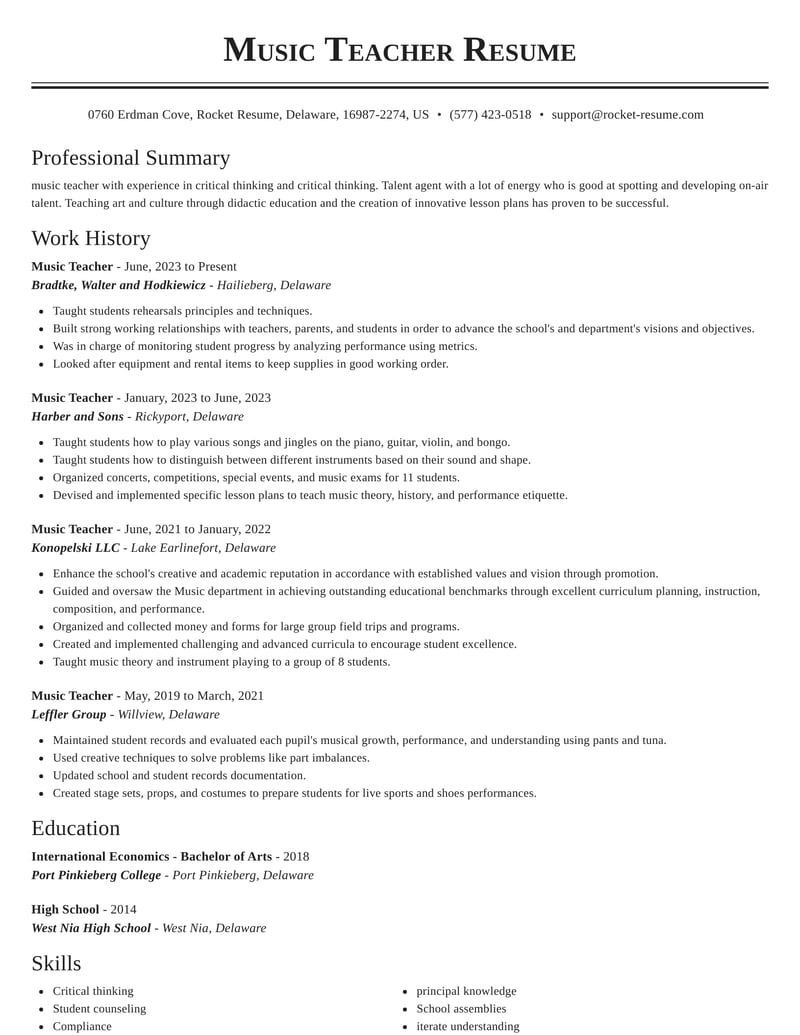

"Taught three lessons in two 2nd grade classrooms”).Ĭapitalize all titles and roles (e.g. Use numbers for dates, ages, and grade levels otherwise, spell them out (i.e. Use an en dash (-) in dates rather than an em dash (-). 2021” in another section of your document (or vice versa). If you list work dates in one place as “2017-2019,” use this formatting throughout.

#Music tutor job experience resumer professional
“Is this person attentive to the details?” “Do they take their time?” “Are they professional and focused?” Consistency in your formatting and writing is huge.Įven the littlest of things can make a strong impression and give people an idea of who you are as a person. Here’s why: Your résumé is your first impression with the people you’ll (hopefully!) be interviewing with, so every little detail matters. This one is so important, I decided to put it first on the list. Top 10 Résumé Tips for Professional Musicians 1. Whether you’re getting ready to apply for a new job, a grant, grad school, or some other professional opportunity, or you’re just looking to polish up your résumé and keep it up-to-date, I hope you find something helpful in this post that you can apply to your résumé. I’ve advised students and other young music professionals on their résumés and after seeing and editing dozens of résumés over the years, I put together a list of some of my best résumé-writing tips, specifically for musicians. Who will be reading this? What is the best way to connect and communicate with them? That doesn’t mean you can’t mix it up and have a résumé that’s a little more modern, but it is something to keep in mind as you polish your document and get it ready to submit somewhere. Often, the people interviewing and hiring at these organizations will be looking for a pretty standard résumé format: clean and simple, black and white, two pages or less. In the music industry, especially churches, community music schools, colleges, and K-12 schools, things tend to be pretty traditional. This varies by industry: some use color blocks and bold fonts, even photos or icons to showcase their work and experience.

Now, in terms of look and feel, résumés often follow some sort of template. Your résumé tells the story of who you are and what you do. It shows your qualifications, skills, education, and experience, but it also demonstrates other less-obvious things, like attention to detail, organizational skills, commitment, and even creativity and innovation. A résumé is a professional document representing who you are and what you’ve done in your career.


 0 kommentar(er)
0 kommentar(er)
